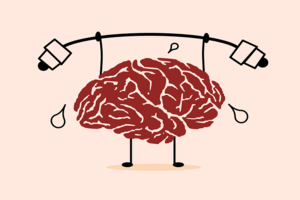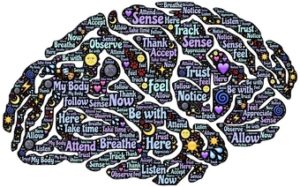Why is it so hard to control your mind when it comes to spending?
Think of one hard conservation about your finances you know you should have with yourself that you haven’t initiated. For me, it is mind over money. Do you have one in mind? I know that you do, so be honest with yourself.
Now, consider why you haven’t had the conversation.
Is it because you don’t know what to say to yourself? I bet you know exactly what you want to say. It is because you are too busy. I guessing you’ve already missed a few ideal moments to raise this uncomfortable issue. Hmmm, why is it uncomfortable? It is because you get a weird feeling? How you feel does not define who you are.
So, why haven’t you had the conservation? – My compassionate voice is reaching out to you.
Because it is scary, confusing and you don’t like the feeling you get when you confront yourself. You prefer to not even think about it.
Mind over money
Making financial decisions are normal parts of life. It does not matter if you think that you are good at it or not. You must make the decisions.
But merely understanding this fact isn’t enough to ensure that you make sound decisions when it comes to managing your green stuff. Have you ever made a decision – good or bad - and later wondered what motivated you to make that choice? If you are like me it happens all too often.
Interesting facts about our spending habits
The New York Federal Center for Microeconomic Data collects and publishes quarterly reports on household debt and credit. In the first quarter of 2019 aggregate household debt balances increased for the 19th consecutive quarter. The good news is that household credit card balances declined but credit card limits rose for the 25th consecutive quarter. Another bit of good news reported was, credit card account closings were at the highest level since 2010, with 229 million accounts closed within 12 months. Are you one of the 22 million who closed an account?
The Federal Reserve of Atlanta the region that covers my city last reported that retail sales were unchanged from the previous report. Sometimes I wonder how much I am contributing to the numbers that are reported. Please understand, I like spending money as much as anyone. I am totally for spending when preparation meets purpose.
My story - A mind over money experience
I went shopping for an all-white outfit – to meet the dress requirements of a party. I never wear all-white so this was a struggle for me. While in the store I found a satisfactory pair of pants and a shirt. However, while flipping through several pants racks I fell in love with 3 different colors (light green, sky blue and lavendar) of pants and they all fitted perfectly. Before I realized it, my subconscious mind had made the decision to take the garments home. So I tossed the garments over my arm and proceeded to the checkout line.
I didn’t feel any anxiety at the time but, there are times when I feel anxious or fearful just before I hand over my cash or sign on the bottom line. What about you? Do you feel anxious or fearful at times about your money? Well, either way, your mind has a lot to do with it and here is why.
The part of the brain that responds to fear is the amygdala (amygdale is Latin for almond). The almond size amygdala sends out warning signals, which create a sense of anxiety when we fear something, such as anticipating or experiencing a financial issue.
The amygdala is most commonly known for its role in aversive learning, in which a behavior is taught by pairing it with an unpleasant stimulus. Have you ever heard of a friend having a “mad money” experience? That’s money they may or may not have –but spend it anyway because spending makes them feel better. The madness is the unpleasant stimulus and spending money is the behavior that is taught or learned.
So, now every time the person gets mad they spend money to ease the madness. As a result, when repeated regularly this behavior pattern may lead to a financial crisis.
The next time your friend mentions mad money to you – tell them that their amygdala needs fixing. And just to make things even more complicated, there are two amygdalae in our heads, one in each hemisphere.
Positive spending outcomes can trigger certain neurons in the brain to release dopamine, a neurotransmitter that regulates feelings of pleasure. Simply anticipating spending money on something could cause your brain to release this chemical. Maybe, this is the reason we get hooked on spending money.
The prefrontal cortex can help counter the brain’s primal responses and guide our social behavior, personality expressions, and decision making as we manage our finances. In effect, the prefrontal cortex can help you concentrate, analyze concepts, and draw logical conclusions instead of simply reacting. The prefrontal cortex is where our rationality lives, without rationality we would only act on instinct. We are the only animal on the planet that possesses a rational conscious mind. This trait makes humans the most intelligent species. So, does that mean that we always make a rational decision? Not in your wildest dreams.
If you feel that your prefrontal cortex is weak and you struggle with willpower, creativity, reason and best of all – goal setting, don’t fret.

Due to the amazing ability of the brain to change itself, you can strengthen this area of the brain with repeated practice.
The best way to increase the activity in the prefrontal cortex, making it stronger over time is to resist instant gratification.
Instant gratification in this context means making a purchase without any financial consideration and no time spent rationalizing. The force of instant gratification is so powerful that it can severely disrupt or transform rational thinking into irrational thinking. As a result, you will find yourself making a poor financial decision over and over again.
Back to my story
As I was heading to the checkout line with the 4 pairs of pant and one shirt, a thought reminded me that I only came to get a white outfit. My prefrontal cortex had taken charge of my thinking. I stopped in my tracks and look at the extra pants in my arms and took a deep breath to clear my mind. I thought about how comfortable they felt when I tried them on in the dressing room, how they would match perfectly with some shirts at home and with the white shirt also in my arms.
In another flash, my prefrontal cortex reminded me that I only came to the store to get the white outfit and I really didn’t need 3 extra pants. So, I left the store with only the white outfit. Most importantly I purchased only what I needed at an acceptable price. In the end - I felt good because I knew I made the right money decision.

To increase your chances of long term financial happiness, understand that your brain’s natural responses can influence your decisions regarding money. Both fears in making money decision and pleasure in accumulating financial successes can complicate your decision-making process.
Simply keeping this dynamic in mind can give your prefrontal cortex a chance to step in and help when your amygdala primal instincts threaten your money. This will help you make a better mind over money decision based on established financial strategies – not emotions.


